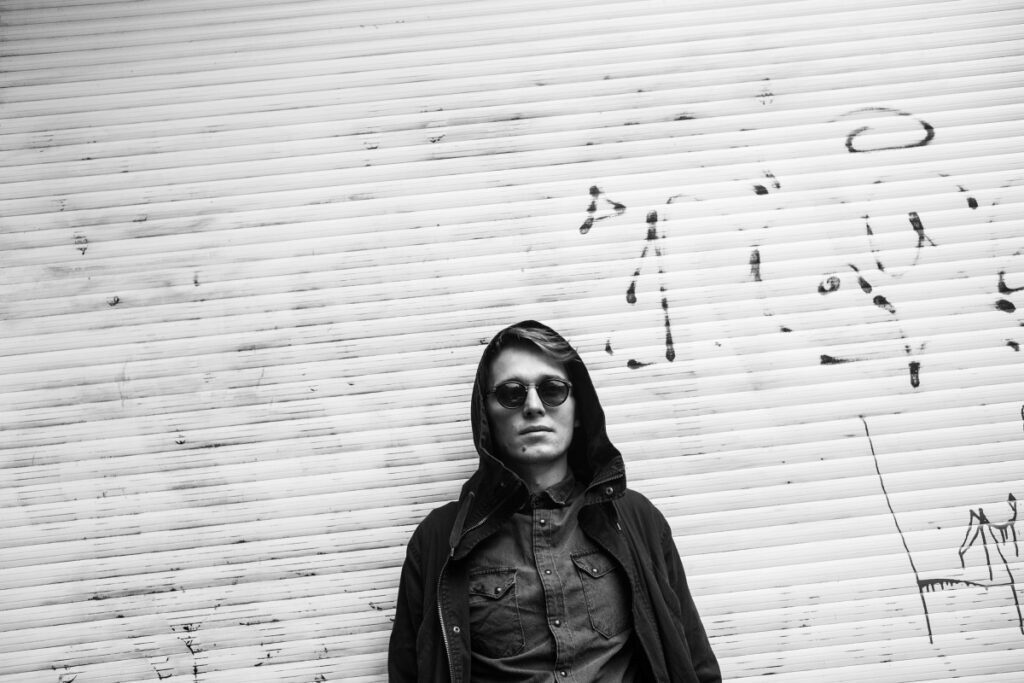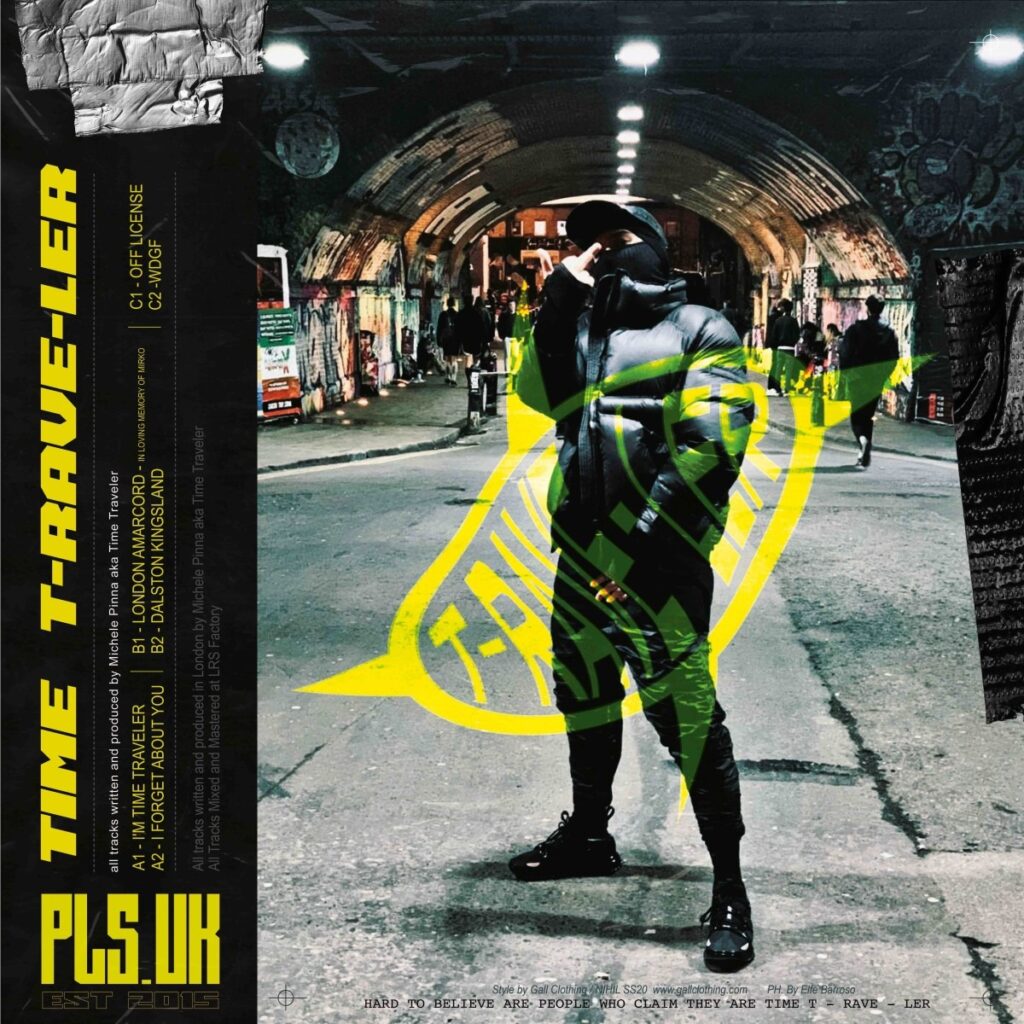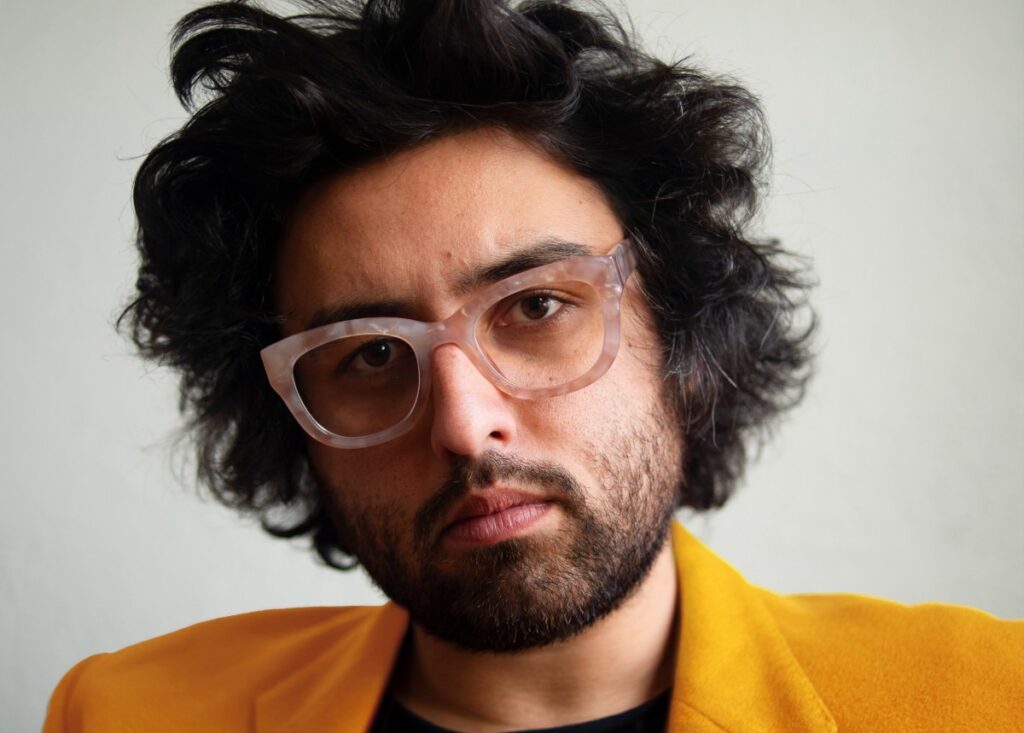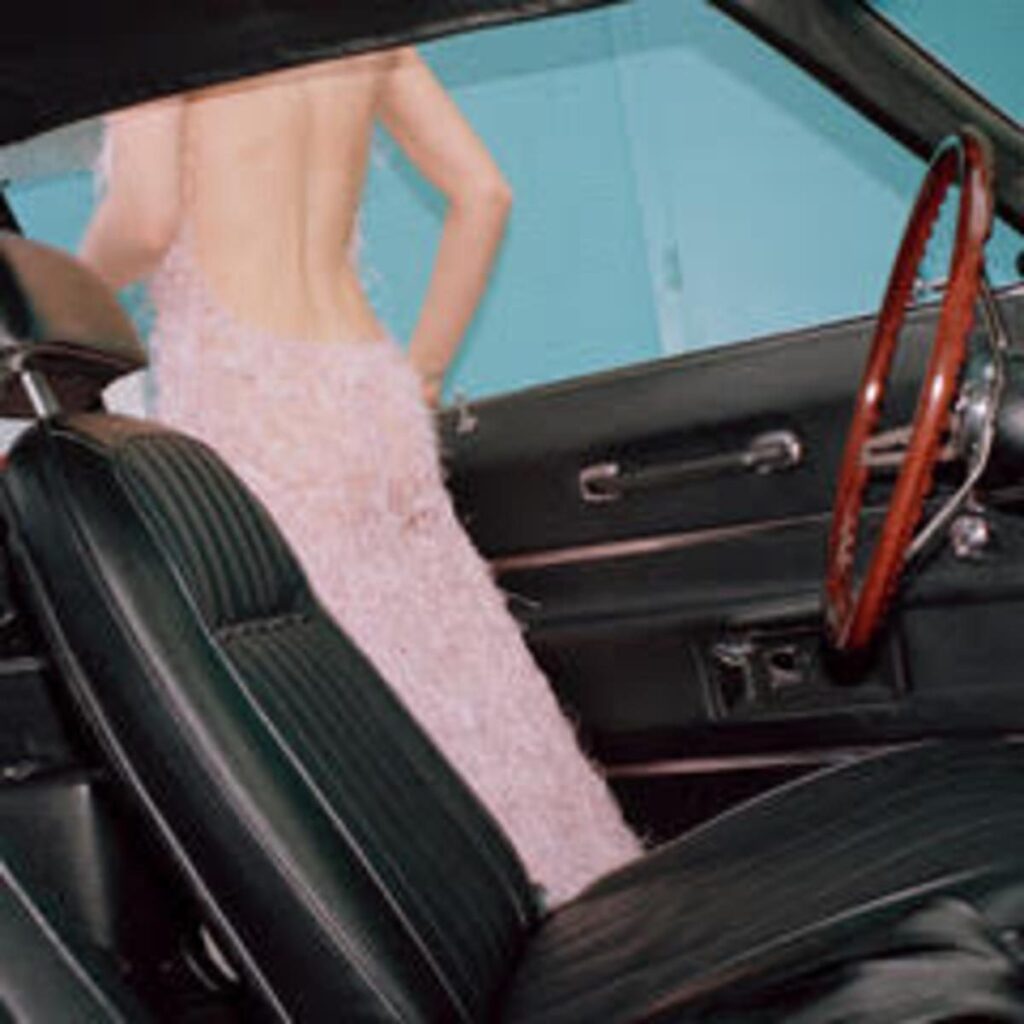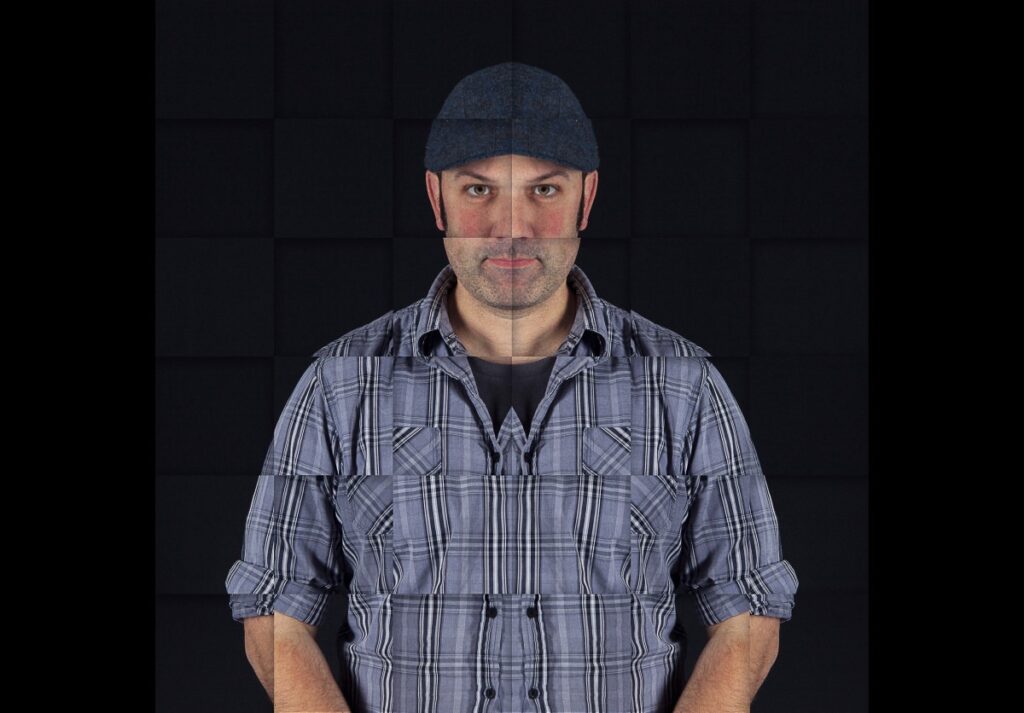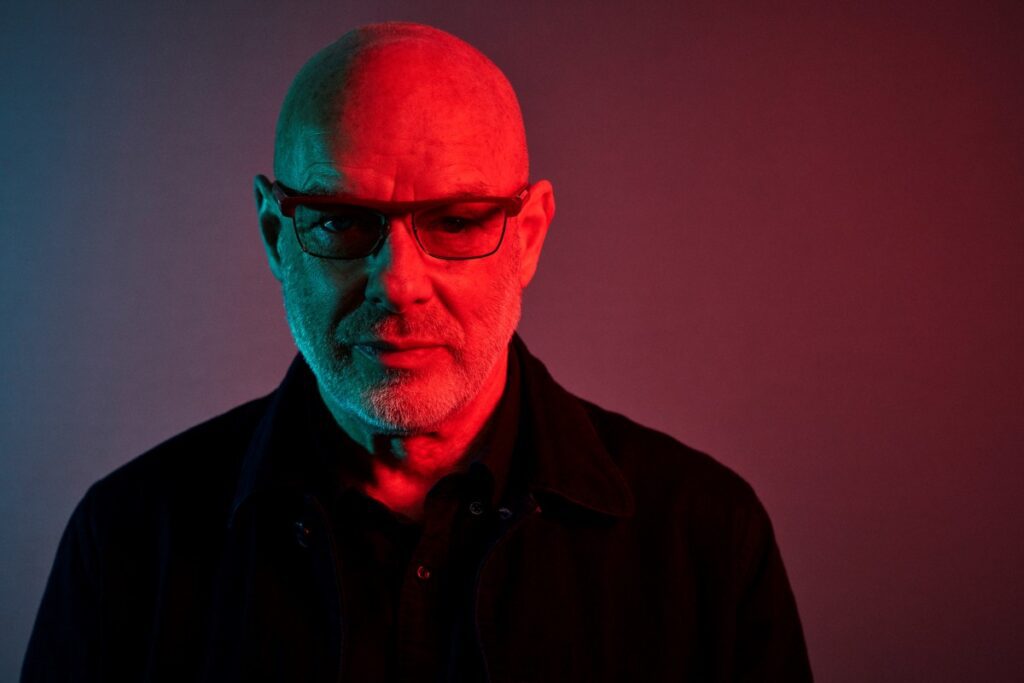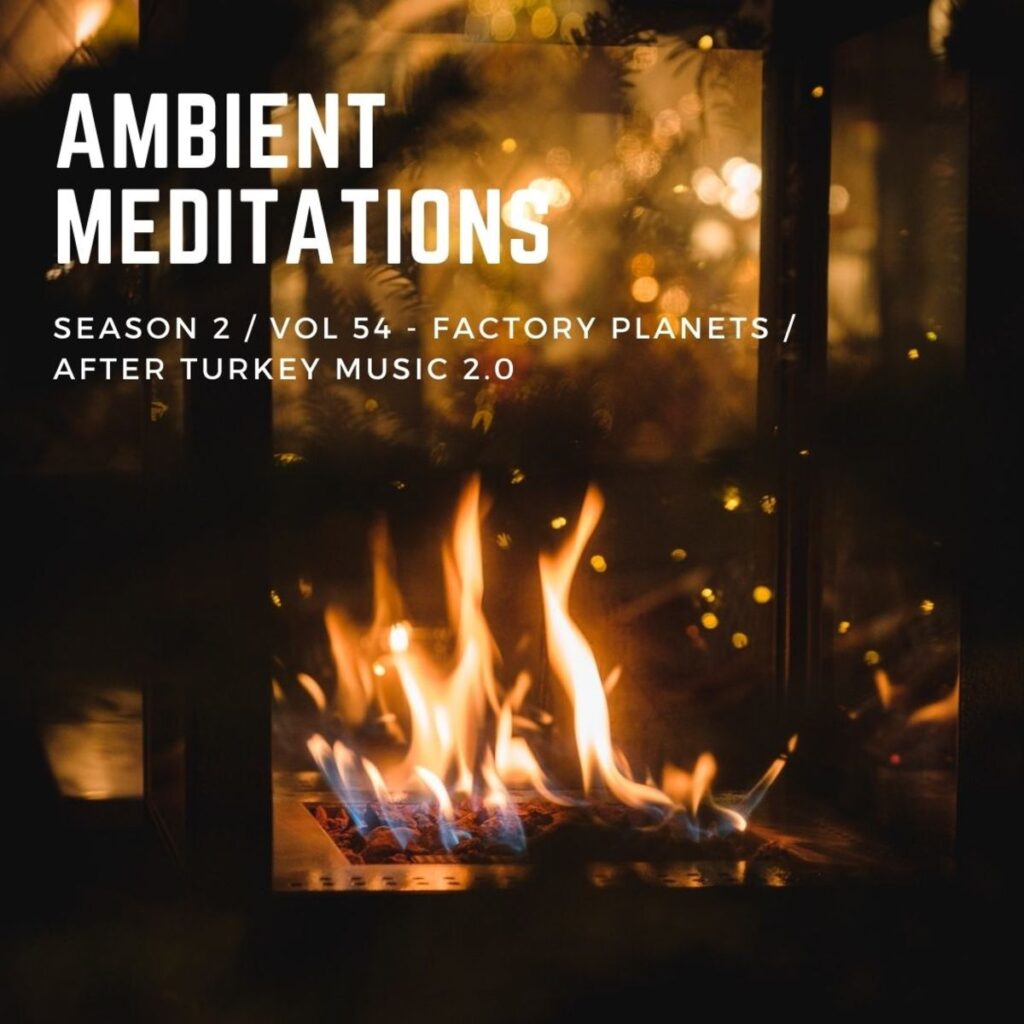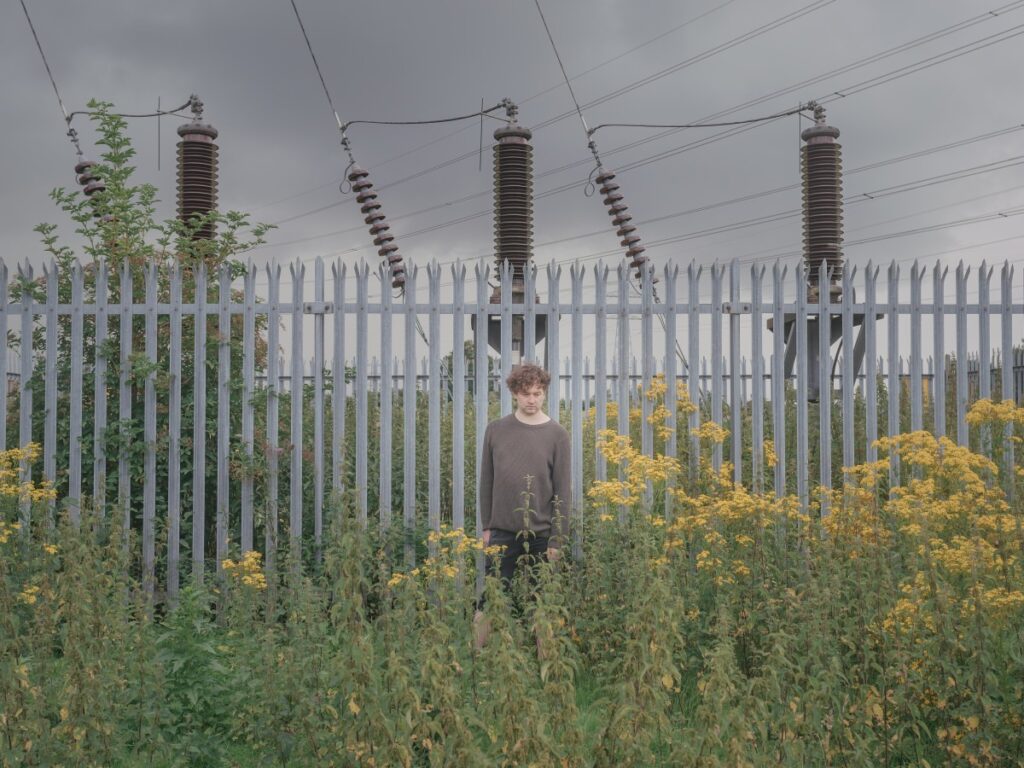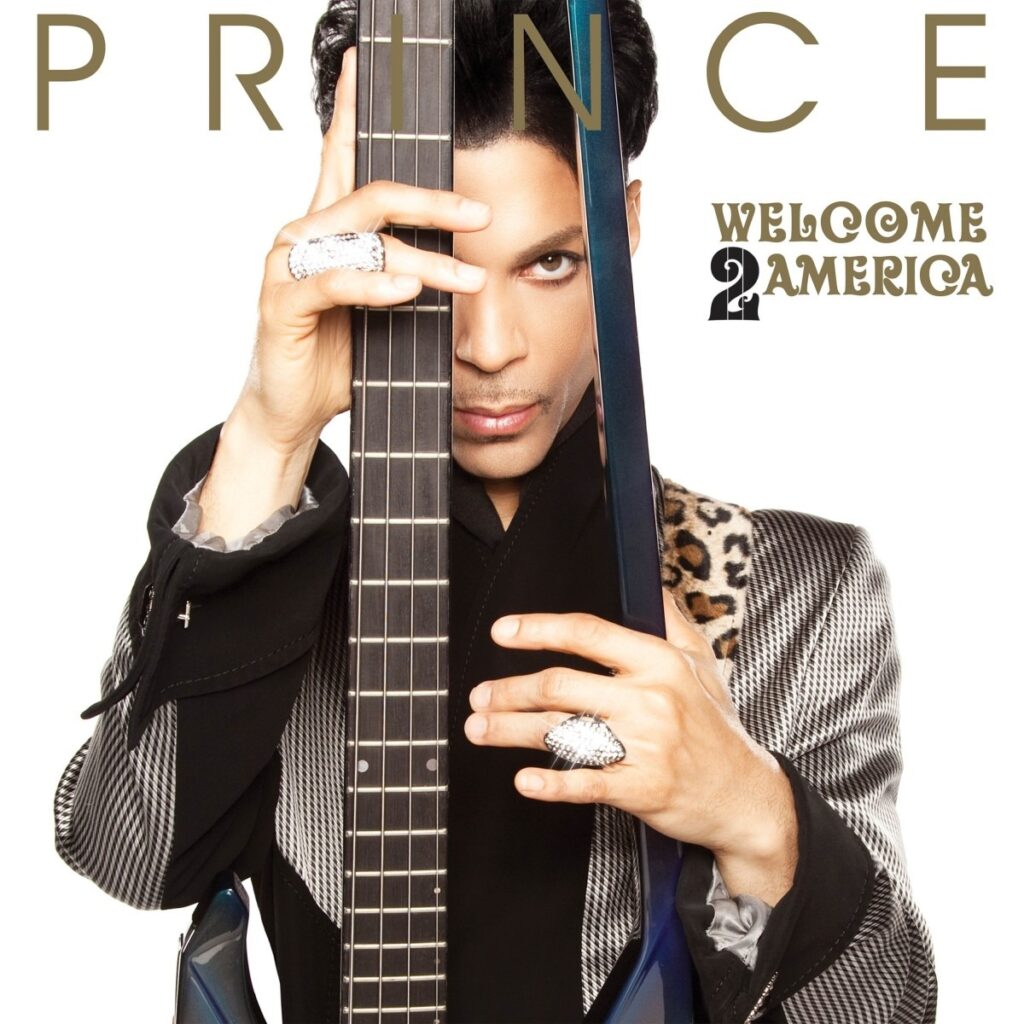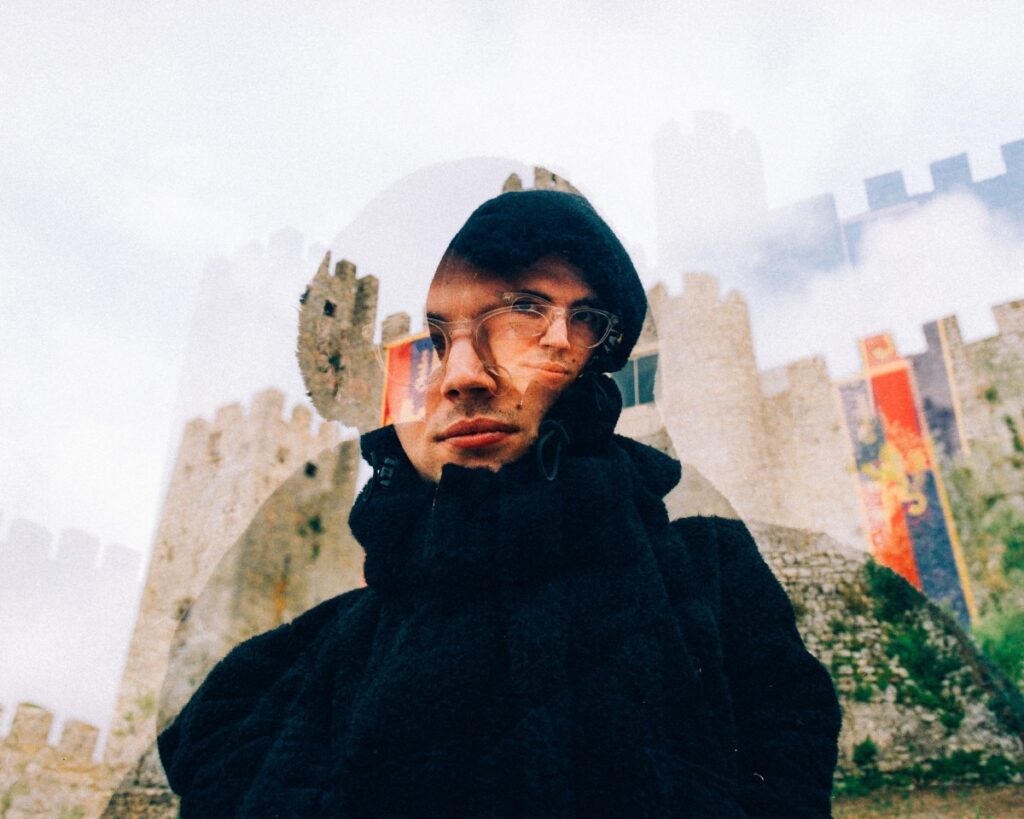We interviewed Polish producer and DJ Blazej Malinowski on his recent projects, his new imprint Inner Tension, and his life as an artist in Berlin. Blazej has crafted a strong identity in the deep and hypnotic techno realm with cutting-edge productions signed on respected labels such as Semantica, The Gods Planet, Silent Season, and Kontrafaktum to name a few. With a specific ambiance, Blazej's music creates a poetic journey into unknown territories with dense and atmospheric landscapes. The career of Blazej began upon releasing his first album in 2012 on Minicromusic and later in 2013 on Silent Season.
Blazej created an audio/ visual ambient series Why So Silent? present in Poland, Seoul, Stockholm that puts into perspective his love of silent movies with ambient/techno music. Earlier this year, Malinowski introduced his new label Inner Tension, featuring a remix by Oscar Mulero. In addition to the new label, he has been staying active in the studio, while also hosting a radio show and, performing live for various online events. Let's deep dive and find out more about Blazej's exciting artistic endeavors.
Hello Blazej! How are you these days? What have you been up to?
Hi and thank you for having me. The last several months were kind of blurry. However, at the same time, those months were filled with a lot of studio hours, which is very positive. As I have no real control over the current situation, I have been focusing on my new releases, projects, and the label as much as possible. I am trying to get myself busy, to steer away from the negative thoughts, and simply do what I can to move forward. I recorded a lot of new music. I have been preparing a whole new Live performance and planning the next step for the Inner Tension label.
How did your native Poland build you as an artist?
When I was starting playing records, the scene in my country was rather small. As I am more of an introvert, it took me quite a while until I built the feeling that I belong there. Over the years I had learned a lot from my fellow artists, promoters, and friends. All of those factors shaped me as a person and as an artist. Being involved in the scene gave me a lot of inspiration and a sense of appreciation for every single gig I have. I know how hard it is to build and promote the events in places where techno music is just at the beginning of its path. Thus, I am always very grateful for every chance to play. I also learned to be patient – the final outcome of our work often depends on many various factors, that are not always in our own control – so it makes no sense to overthink it. I really believe in honest and hard work and that the energy that you give to the outside world will eventually come back to us.
Now, Berlin: when did you move here and how was your first encounter with the city?
I moved to Berlin five and a half years ago when the scene in Poland was not as big as it is now, so I really enjoyed that so many things were happening in the city. I also found it stimulating to somehow create my own paths anew. I have to say that even though it has been a while already, I am still enjoying living here.

Blazej Malinowski By Karol Grygoru
You’ve made yourself a solid name in the realm of deep and hypnotic techno. What was the driver for you to encounter and "deep" dive into this specific type of music?
I never thought about what music I should make. It came very naturally to me. In the beginning, I was hooked to ambient and dub forms and over the years I started to develop my own style out of it. I was always drawn to a certain atmosphere in techno music, it is very important to me that you can dance intensively it but also have a calm time with it at home. It was not the genre itself but the feeling that that specific music gives me.

Blazej Malinowski By Helena Majewska
Your interpretation of techno is singular — blending atmospheric textures with deep melodies taking us to some unknown, dreamy journeys. How did you develop your style over the years?
It was quite a long process of learning about the synthesis of sound and working with hardware and digital instruments. At some point, I knew how I want to play as a live act and what music I wanted to make. I love the hypnotic parts of the tracks, but on top of it all, I am trying to bring a bit more intensity to my performances. That is why I like playing live shows so much – performing at the clubs can bring something new to the patterns I made alone in the studio. What’s more, it brings me a lot of satisfaction to experience my music together with the crowd reacting to it in their own way.
For you, what is techno? How do you think the genre will develop beyond deep techno and connect to various art scenes?
For me, techno is a genre with endless possibilities of creating the sound. I really enjoy that it can go in so many different directions. Artists can record danceable records and soon after experimental or ambient ones and it is still part of techno – at least in my head. Those factors have always been a source of great inspiration for me.
You’ve recently launched your new label Inner Tension featuring your Katharsis EP with a remix of Oscar Mulero. Introduce us to the label: what is your vision and what can we expect in the coming months?
Curating my own imprint was a big dream and also a challenge that I wanted to experience. I have planned already four releases. It always takes a lot of time to make it happen but I will work as hard as possible on it, to bring a lot of good music out to the world. So the main vision would be: focus on artists that I admire, my own music, and later on to bring some upcoming producers that I recently discovered.
What have you learned from releasing music on previous labels such as Semantica, The Gods Planet, or Technosoul?
It has been a long way to actually get recognition by labels. After moving to Berlin, we met with Claudio PRC one day over one of our coffees, he proposed to make my first release at The Gods Planet. Claudio and Ness put a lot of energy to support me and we had the chance to play together on many different occasions. I will be always grateful for that.
A few years ago, Svreca proposed me a first VA release on Semantica and it was a dream that came true since I have been following the label for many years. Semantica is one of the most important labels for me.
With the guys from Technosoul, we were friends, so after they told me that they wanted to make a label as an addition to their promoting work, I could not be happier to release my music with them. The best part of releasing tracks on someone else’s imprint is a friendship that can build upon the foundation of working together. With a few label owners, I have a very good connection and a feeling that when I am ready with a release we can talk honestly about the possibility of releasing the record. I never made music in terms of fitting to the specific label so I am not expecting anything from them. I get that curating the label has to have a concept and direction to it, so if we as artists and label owners agree on the music part, the rest is easy. I believe that mutual understanding of work on both sides can bring something really good about the process and bring a long-term relation.

Blazej Malinowski By Damian Przestrzelski
Who do you deeply admire musically, both on the underground and the mainstream?
It changes constantly but I can point out artists that have an impact and are inspirational for me: Jeff Mills, Rrose, Dasha Rush, Kangding Ray, Donato Dozzy, Oscar Mulero, Murcof, Anthony Linnell, Svreca, Cio Do’r, Mike Parker, among others. Those are the people with a strong artist identity; I have been always drawn to that way of pursuing music.
Now, studio-wise, what are your favorite tools for creating music and for preparing live sets?
I use both hardware and digital instruments and I am not focused on one or the other. But the stuff I use the most would be Reaktor, Omnisphere and Arturia instruments. For hardware I use a Moog Sub 37, Roland Tb 03, Elektron Analog Rytm, Virus TI2, and my small modular rack from Bastl Instruments. But as I mentioned earlier, the patterns of work can change. I work with instruments that give me joy and a sense of inspiration at a certain moment. Later on, when I have new ideas for the tracks I want to perform, I use Ableton to prepare my live sets and that is how I have been playing in recent years.
If you had any advice to give to aspiring music producers and DJs nowadays, what would you tell?
Work hard as much as possible in different fields of the scene. Be patient and do not focus too much on fast outcomes. I believe that this approach will always bring something back.
You’ve been a radio host, label curator, music producer, DJ, and event promoter: what roles do you enjoy the most?
The most important and enjoyable parts would be making music in the studio and playing gigs. The feelings I get playing in front of people are incomparable with anything else, and I simply love it. Promoting events and having the radio show (with Michał Wolski) always gave me a lot of satisfaction, so I am not planning to stop anytime soon. I really like inviting artists that I admire to both my parties and the label. And speaking about the label – curating my own imprint was a dream of mine and I still have a lot to learn, but after releasing the first record, I have to say it was very fulfilling and I cannot wait for the next ones.

Why So Silent?, Vurt, Seoul, South Korea
From Poland to Berlin, your event series Why So Silent? features silent movies with musical performances and DJ sets: how did you come up with the concept? Do you have something planned for future events soon?
Before starting the project, I was invited a couple of times to perform during Silent Movie Festival. It was mostly focused on bigger, better-known titles but it felt that the music was more the addition factor there. I wanted to bring music to the front and show more experimental movies. At first, I was working closely with Dorota Tomaszewska who was a manager of Znajomi Znajomych club, where it all started. Thanks to her, I had a date set for those events every month for a couple of years. The project started very small and I did not have many expectations that it will become something more, but surprisingly after a while people noticed it and we always had a lot of people during the shows. The idea was to revert to a classic approach of scoring the movies. For me, the most important part was the music from my guests. The images always followed what was coming out from the speakers. It gave me the opportunity to explore and discover both amazing titles from the silent era and also to listen to great music. For obvious reasons, the project is on hold but I will definitely go back to it when the global situation will finally improve.
What are you looking forward to in 2021 — music-wise or events-wise when the situation allows again?
I really miss playing, meeting people, and traveling. I am trying to be hopeful that it will be over soon but who knows where it is gonna take us. I am just trying to record as much music as possible so I would be ready to play new tracks when clubs will open again. So to sum up, I am looking forward to some kind of normality and being able to perform again without the stress that is glued to the pandemic situation.
Outside working in the studio or playing music, what do you enjoy doing?
My life is divided into two major things. Studio work and my family. I like to travel but it was always connected to my gigs. So besides my studio work, I am trying to spend time with my family, friends, or surrounded by nature.
More about Blazej, Inner Tension, and Why So Silent?
Facebook: https://www.facebook.com/malinowskiblazej
Soundcloud: https://soundcloud.com/blazejmalinowskiofficial
Resident Advisor: https://ra.co/dj/blazejmalinowski
Inner Tension: https://innertension.bandcamp.com https://www.facebook.com/innertension
Why So Silent: https://www.facebook.com/wsosilent


